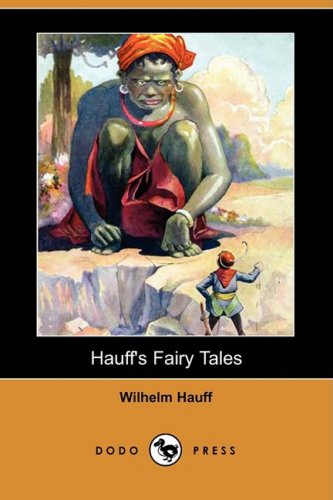HAUFF'S FAIRY TALES
Wilhelm Hauff, CICELY MCDONNELL
language
(Redhen, May 11, 2012)
IN Upper Swabia there stand to this day the walls of the Castle of Hohenzollern, once the finest in the land. It was built on the top of a high round hill, and from its look-out tower you could see all the length and breadth of the land. And far and near the brave deeds of the Hohenzollerns were admired, and the name was known and honoured all through the kingdom of Germany.About four hundred years ago, almost before gunpowder was invented, there lived in this castle a Zollern, who was a most peculiar man. No one could remember ever having heard him speak like other men; for if when he was riding through the valley any one greeted him and doffed his cap, or stopped and said, "Good evening, noble Count; it is lovely weather," all the answer the Count would give would be: "Stupid nonsense!" or, "I know that!" And if by chance any one did not make way for him and his horse, or if a peasant with a cart blocked the path, so that he could not gallop as fast as he chose, he gave vent to his anger in a torrent of curses; but he was never known to thrash a peasant. And all through the land he was known as "the Stormy Knight of Zollern."The Stormy Knight of Zollern had a wife who was as different from him as could be, amiable and gentle as an angel. And when people had been upset by their lord's harsh words, her sweet voice and kindly looks won them back to their allegiance. To the poor she was always a good friend, and in the summer heat and winter cold might be seen going down the steep hill to visit some sick child, or some family needing help. And if the Count met her on her way he would growl, "Stupid nonsense! Don't I know it?" and ride on.Many wives would have fretted or frightened themselves over this disagreeable temper. One might have said, "What do the poor people's trouble matter to me? My husband says it's 'Stupid nonsense.'" Another might have let her love for such a gloomy husband get cold. But the Lady Hedwig von Zollern was not like this. She loved him as much as ever, and with her small white hand would stroke the frowns from his forehead, and would soothe and caress him. And though after they had been married a year and a day, God sent them a little son, she did not love her husband less, but tried, in spite of her many duties, to be a wise and tender mother to her boy. Three years went by, and only every Sunday at dinner-time did the Count see his son and take him from the nurse's arms. He would look at the child, mutter something in his beard, and give it back to the nurse. When the boy could say "Father," the Count gave the nurse a florin, but took no kindly notice of the child.When Kuno was three years old the Count ordered the child to be dressed in trunk hose and a doublet of velvet and satin; then he called for his own black horse and two others, took the boy in his arms, and descended the staircase jingling his spurs. The Countess Hedwig was amazed. She was not in the habit of asking her husband where he went, or what he was going to do, but anxiety for her child made her inquire:



